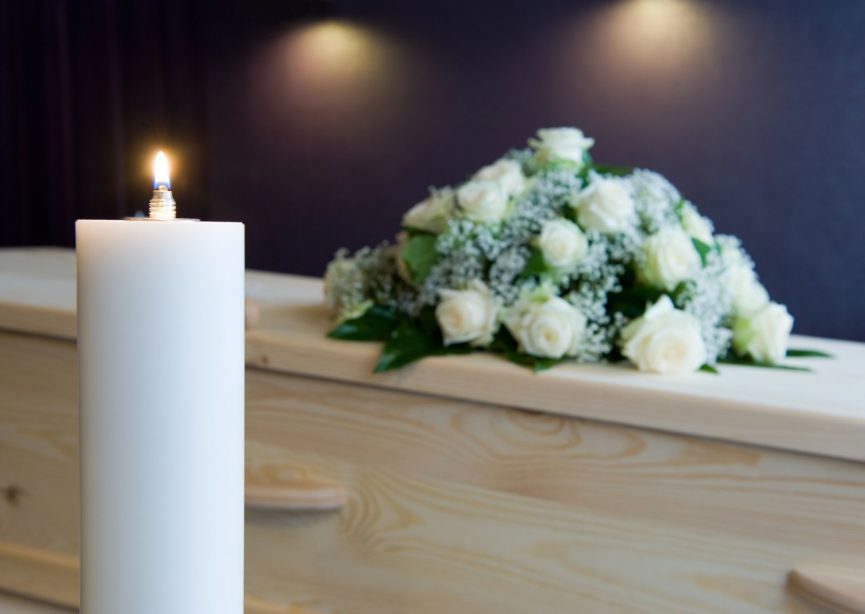One of the most overwhelming and emotional times of your life is losing a person that you love. It doesn’t matter whether or not their death is expected – it is still a shock. Once you get pass the shock, the overwhelm sets in. Most people have no idea what they should do when someone dies, so in this week’s article we’d like to explain a little bit to you about what happens and how we help you. Burnett Regional Funeral Services is here to help, 24 hours a day, 7 days a week. It may be that funeral arrangements have already been started, particularly if your loved one’s death was expected. In this situation, all you need to do is notify us of the death, and we will get started on taking those arrangements forward for you. If no plans have previously been put in place, that’s okay. Call us and we will walk you through the process. We are here for you every step of the way, and please rest assured that your loved one will be treated with the utmost dignity and respect while in our care. Within the first 24 hours after a death, we make arrangements to take the deceased into our care and we will also arrange a time and place for our initial meeting with you. We will discuss both of these things during our initial conversation with you. Meetings happen where you are comfortable. This is usually at your home, but can also be at our office. What does the funeral director do? Our job as the funeral director is to do everything we can to ease the stress on you, and to take care of all of the funeral arrangements. It is important to us that your and your loved ones wishes are respected, and that their life is celebrated as they would have wanted. After our initial conversation, we will arrange for the body to be transferred into our care, even if your loved one has passed away out of town, in a different state or overseas. We will liaise with the cemetery or crematorium on your behalf, organise the service, liaise with the celebrant or clergy, work with florists, make all necessary arrangements with the church, chapel or venue of your choice, register the death of your loved one, collect the relevant medical paperwork and dispatch as necessary, supply the hearse, collect floral and other tributes on your behalf, prepare the deceased for viewing, organise any required advertising, source music for the service, prepare slideshows if required and provide memorial attendance books for friends and family to sign. We can also refer you to grief counselling services if you feel this would be beneficial. Our initial meeting Our initial meeting with you will most likely last approximately one hour, and during this time we will help you to make several important decisions about the funeral. We will also go through everything needed to register the death, which we will … Read More
Talking about your final wishes
Whether we like it or not, one of the few certainties of life is death. Discussions around death can be uncomfortable, and talking to your friends and family about your final wishes can be a difficult and emotional conversation for all involved It doesn’t matter whether you’re healthy or suffering from a terminal illness – none of us know when our time is up. For that reason, it is important to prioritise discussing your final wishes with your family. In fact, documenting your final wishes and ensuring your loved ones are aware of those wishes is a loving gift you can leave behind when you pass away. Decide what your final wishes are You need to have a clear idea of what your final wishes are before you open the conversation with friends and family. There are many factors to take into consideration. Would you like a religious funeral in a church, or a more casual memorial? Would you like to be buried or cremated? There are many questions to take into consideration, and our free printable final wishes template can help you to map out your wishes in an easy to complete and read format. Use the completed worksheets during your discussion with your family and ensure your next of kin and at least one other person has a copy and knows where the original of both your planner and your final will and testament is stored. Taking that first step and initiating any conversation around death is difficult, but don’t worry, we’re here to help. Starting the conversation around final wishes and death One of the most important parts of discussing your final wishes with your family is how you open the conversation. We would suggest making your intentions of opening the door to this discussion clear to your friends and family – it’s best not to blindside them. Decide who you would like to be involved in the conversation, and set a time and place for this to take place. Where would those involved in the discussion feel most at ease? For some, this might mean arranging for your discussion to take place on neutral ground. For others, a meeting around the kitchen table might be the most comfortable. Ensuring everyone feels as comfortable as possible – including yourself – is important. Express to those you wish to include how important it is to you to have this conversation, as this makes it more likely for them to willingly participate. At first, you may find it easier to limit the number of people involved in the conversation and then include others later. It is important that everyone who will be involved in making arrangements after you pass away is included in the conversation at some point, as this can help to avoid conflict when the time comes. You might even like to practice the conversation around your final wishes with a friend before discussing it with your family. Remember, you don’t have to discuss everything in one … Read More


